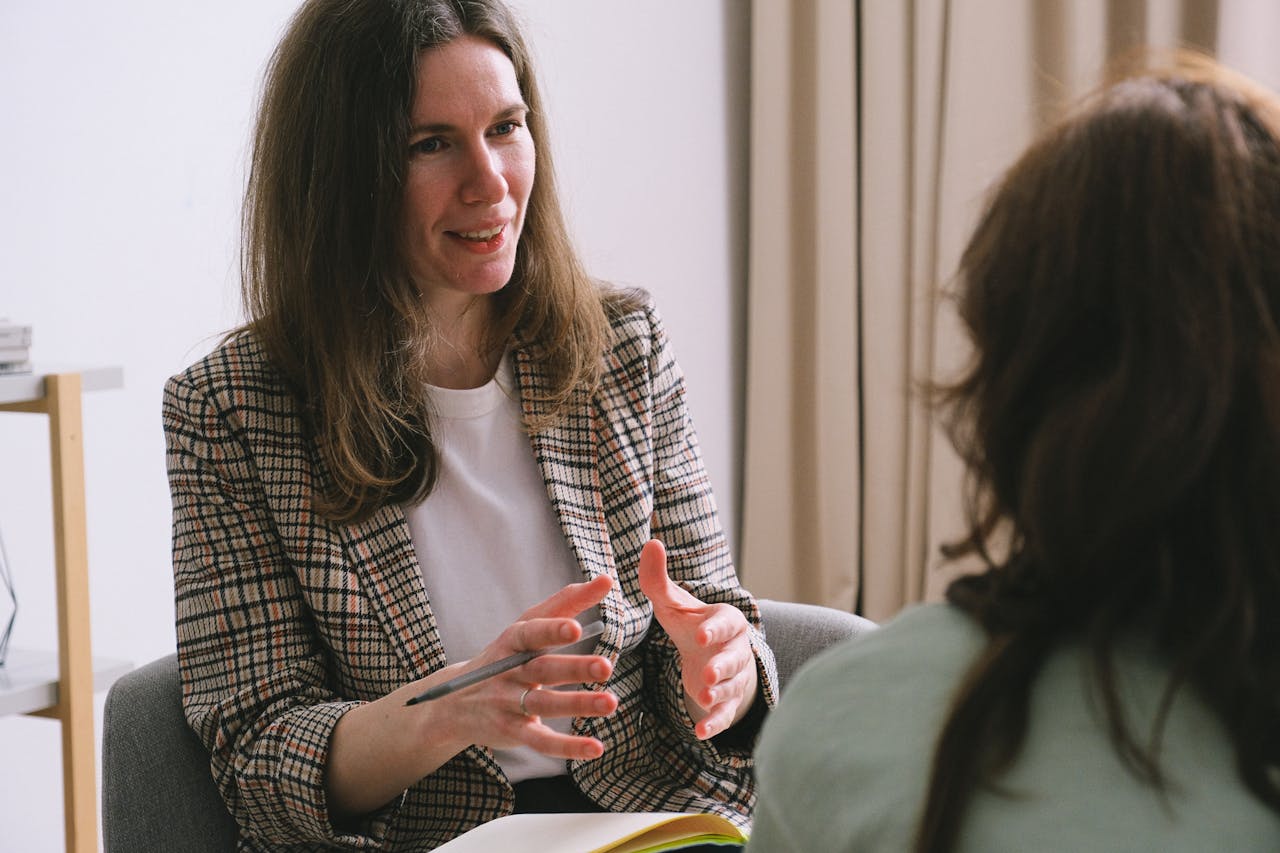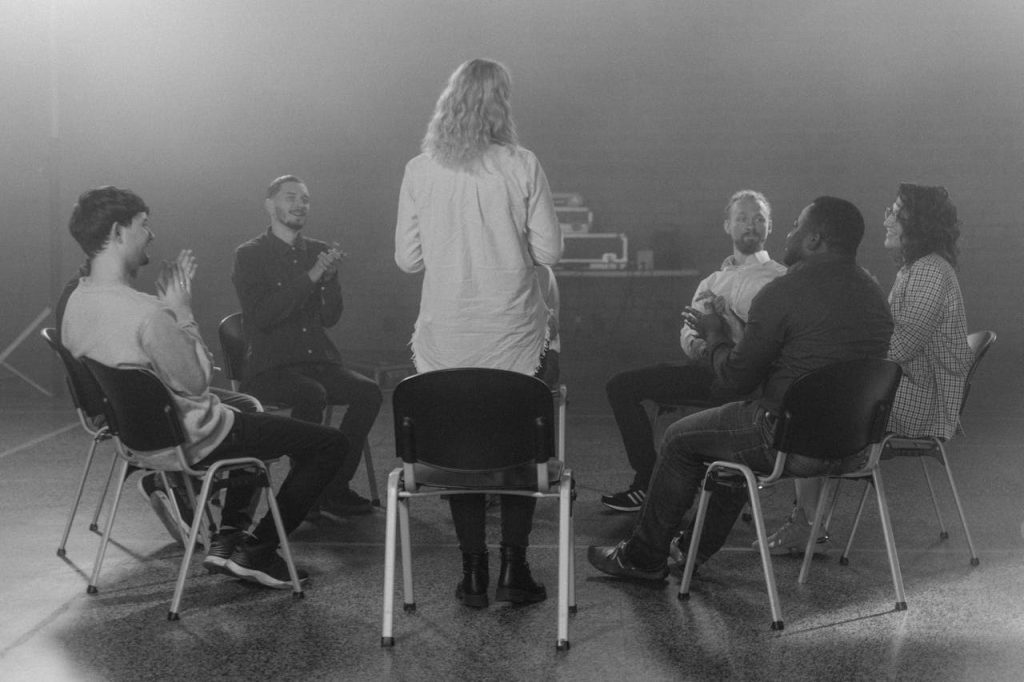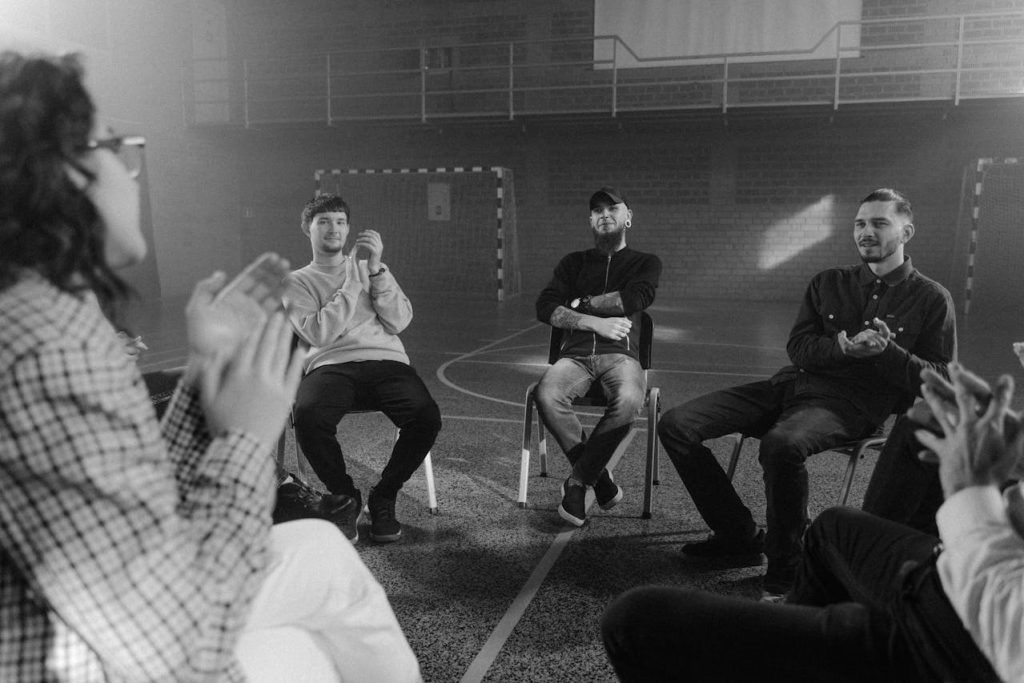When you’re stuck, lost, or unsure what to do next, a therapist for life transitions can be your [remedy]. All of us encounter big transitions — moving, starting new jobs, breaking up — and these times can leave anyone feeling stuck. A therapist provides a confidential place to discuss and piece together what’s happening. They apply established techniques, such as talk therapy or cognitive hacks, to discover rhythms and construct habits. Sessions frequently include concrete plans to move forward, not merely problem discussion. For those who wish to feel more grounded and have more clarity about their lives, working with a therapist is a wise move. The next sections will reveal what to expect and how to choose the right helping hand.
Key Takeaways
- Acknowledging that you are stuck when life transitions is a first essential step towards change and well-being.
- If you’re feeling stuck, gaining a deeper understanding of the complex emotions and underlying causes behind being stuck can help you identify patterns and develop effective coping strategies.
- Therapy for life transitions provides support, structure, and evidence-based tools from a professional to help you build resilience and clarity.
- Working with a therapist helps you discover what drives you, reformulate who you want to be, and create achievable goals for your changing life.
- Complementary support like self-care, peer groups, and mentorship can amplify the rewards of therapy and help cultivate enduring growth.
- Ultimately, thinking about your own specific predicament and whether or not you’re primed for change will inform whether working with a therapist is the right step for you to move past being stuck.

Understanding “Stuck”
Being stuck is a very valid, and frequently nuanced, reaction to life changes. Most of us, regardless of our place in the world, have felt this way. We tend to experience these feelings during life-altering events, like relocating, switching careers, or breaking up. At its base, stuckness frequently arises from unfulfilled objectives or lingering concerns. Noticing this sensation within yourself is the initial action in making meaningful transformations.
The Feeling
Emotions accompanying stuckness vary from mild frustration to profound hopelessness. Others talk about a feeling of sadness, anxiety, or even numbness. These emotions can manifest as apathy or hopelessness.
Being stuck is human, particularly in times of transition. There’s no shame in it. Recognizing your feelings can assist you in realizing that you’re not the only one. Lots of people have these feelings, and it doesn’t mean you flopped.
These feelings can hijack your day-to-day life. They may decelerate your decisions, prevent you from connecting, or even distort how you address questions. If you find you’re making the same decisions out of habit, it might be a wake-up call that these emotions are defining your trajectory.
Journaling might help. If you put your thoughts in writing, it becomes clear what is actually happening. This easy exercise can frequently provide clarity and highlight patterns you hadn’t observed.
The Cause
There’s a lot of things that can make you feel stuck. Life crises such as losing a job or a loved one. Big life changes, like beginning a new career, can bring on this sensation.
History is a factor. If you’ve hit walls in the past, that memory can cast a shadow on your present decision making.
Stress from the outside world — like family demands or money problems — frequently compound the sensation. These pressures can freeze you, even when you want to act.
Recognize if you continue to land in the same place. If you find yourself frequently stuck in jobs, friendships, or habits, this might signal a larger pattern worth investigating.
The Cycle
The stuck cycle is difficult to escape. We procrastinate on hard decisions, or fall into ruts of bad thinking. That can become a loop. The more you procrastinate, the more stuck you are, and back to step one.
This loop fuels anxiety and makes it even more difficult to experiment. It has the power to take small steps big and make doubts factual.
To escape the loop, begin with mini. Easy to take steps—like changing your commute, or chatting up a stranger—can demonstrate that transformation is within reach. It can help significantly to test out these new behaviors in low risk ways.
Notice yourself Even minor shifts in your thinking or actions can disrupt the cycle.
Why Change Feels Overwhelming
Change is hard because it frequently rattles our foundation. It can evoke terror, panic, and even mourning for the former life or self. Not knowing what the future holds or who we’ll be soon enough can compound the strain. The loss of routines, hard decisions, and new roles all contribute to the instability and overwhelm.
Identity Shift
Major life transitions — a new job in a foreign country, a break-up with a longtime partner — can shake your sense of self. When your role shifts, or your environment changes, your identity can become less stable. You may question if your skills or values or strengths still align. It’s in these moments that it’s ripe to look inward and concentrate on what you care about — be it truth, generosity, or intellectual curiosity. Other times, you just require a little time and assistance from others—like mentors or therapists—to regain your footing. Though these times are disorienting, they provide space for transformation, allowing you to forge a new identity that matches your current life.
Routine Loss
Losing your routine — like when you change cities or jobs — tends to leave you feeling adrift. Routines provide comfort and ground life’s turbulence, particularly in times of great change. Without them, even tiny things seem tougher. The good news is that you can construct new routines that fit your current situation and objectives. It requires patience. It’s not immediate, and it’s okay to be annoyed when new habits don’t hold at first.
Future Fear
Anxiety over the unknown can prevent you from taking necessary action, such as pursuing new employment opportunities or breaking up a bad romance. Uncertainty drives anxiety and can fog your decision making. When your future feels like an unknown, it’s natural to obsess on what might go awry, rather than what might go well. Attempt to identify these negative thoughts and redirect them to potential positives. Cultivating a habit of seeking good, even in hard times, enables you to confront change with less dread and more optimism.
Therapy for Feeling Stuck: What to Expect
Therapy for stuckness is a stepwise process molded to you. It seeks to assist you in identifying your blocks and developing ways for moving forward. A therapist provides a safe space to speak–without blame or judgment. You collaborate, with actionable strategies to handle stress, anxiety, or major life transitions like new employment or relocation. Your advancement is based on your involvement, your rapport with your therapist, and your willingness to experiment with unfamiliar coping mechanisms.
Aspect | What to Expect |
Openness | Share thoughts, feelings, and life events honestly. |
Collaboration | Set goals, review progress, and adjust plans with your therapist |
Exploration | Look at both past and present reasons for feeling stuck |
Techniques | Try coping skills, reflection, and structured routines |
The Process
Therapy isn’t a silver bullet, it’s a slow accumulation. You’ll examine recurring trends in your history and how they manifest currently. That is, discussing family, culture, or pivotal moments. The therapist might have you journal, do roleplay exercises, or monitor your daily habits. Some weeks you’ll notice big strides, other times small victories are what count. Maybe you’ll feel awkward or want to quit, which is normal, but you persist.
You may experiment with different coping strategies, such as scheduling small habits or scripting difficult conversations. The right approach may be a while in coming. If you don’t click with your therapist, no worries, find a better fit. It’s for you.
The Outcome
Over time, you’ll experience greater clarity about your emotions and decisions. Therapy can assist you in identifying old patterns and establishing new daily habits. You learn new tools for managing stress, anxiety, or big change. Others acquire strategies to split decisions into tiny, manageable increments.
You won’t always feel better immediately, but the forward movement is concrete—each step matters. With consistent effort, most individuals discover that they are able to manage life’s transitions and feel less immobilized.

Beyond Therapy: Complementary Support
Therapy is essential when navigating significant life transitions, but it’s just one piece of a holistic support strategy. Regardless, most folks discover that incorporating other tools and practices along with therapy helps them stay grounded and make consistent headway. For those feeling stuck, the following options offer practical ways to boost mental well-being and resilience, either as stand-alone methods or paired with professional help:
- Self-care, whether that’s exercise, deep-breathing, sleep hygiene, or daily gratitude journaling, nurtures emotional equanimity.
- Peer groups connect you with others dealing with similar transitions, where you can share, learn, and encourage one another.
- Mentors who have braved life transitions can offer hope and guidance.
- Targeted self-help supplements, such as books or digital courses, can complement therapy, but should be employed judiciously and under supervision.
- Simple daily rituals, like nourishing food, staying hydrated, and stretching often, cultivate the foundation of long-term permanence.
Self-Care
Self-care is the cornerstone of mental health in difficult periods. If you can schedule in something like a daily walk or some five-minute breathing exercises, this will help clear your mind and manage stress. Easy actions — like noting three things you’re grateful for each day — can turn your attention away from what’s lacking and toward what’s functioning. Small steps, like eating balanced meals, getting enough sleep, and staying hydrated, can go a long way—just as much as professional support. Experimenting with your self-care ideas allows you to determine what suits your needs, and maintaining a consistent routine allows you to develop endurance and persist when it gets difficult.
Peer Groups
When you connect with a peer group, you realise you’re not alone. By hearing stories and learning about others’ journeys, we feel a sense of belonging. Peer support can ease sharing fears or doubts, while group feedback and encouragement can assist you in trying out new coping skills within a secure environment.
Peer groups play nicely with therapy, providing additional support between sessions.
Mentorship
A mentor’s wisdom can be an anchor in times of transition. Forging connections with those who have already navigated similar transitions provides practical guidance and optimism for the journey forward. These relationships can help you view fresh possibilities, avoid the errors of your peers, and receive support when all seems in flux.
Mentorship isn’t solely about guidance — it’s about being inspired and driven by another person’s journey and development.
Is This Path Right for You?
Being stuck during a life shift can signify numerous things—perhaps you feel adrift, experience difficulty making progress, or find that you can’t shake a bad feeling. If these thoughts consume your days and make it difficult to work, study, or socialize, it may be time to consider whether you need assistance. Indicators such as panic attacks, extended periods of anxiety, or insomnia are common during these periods. Sometimes, simply labeling these emotions provides relief, but more times than not, it takes something else to get unstuck.
Therapy provides a sanctuary to discuss these thoughts without fear of blame or shame. Rich and poor, black and white, young and old, men and women–everyone uses this space to share things they wouldn’t say to their friends or family. It’s not about “fixing” you, but about opening your eyes to new possibilities and teaching you skills that fit your life. Others discover that mindfulness-based therapy teaches them to observe their thoughts and emotions without becoming entangled in them, which can be crucial in decision-making. Others may align more with group or family therapy, or even online alternatives, which come in handy if you travel frequently or have unusual work hours. Each style has a way to back you up, so consider what you could experiment with.
There is no one-size-fits-all answer. Your needs are yours, influenced by where you live, who you trust, how you get by. If not, give yourself some time to think it through. Ask yourself if you’re ready to talk or if you wanna wait. At times, simply contemplating this step can get the ball rolling. So if you want to grow, learn new coping mechanisms, or simply view your life from a new perspective, therapy can lead you at your own speed.
Deciding on therapy in the midst of a life transition is an individual decision. It means surveying your life, confronting tough questions, and accepting assistance. This path is not about fast, easy solutions, it’s about tiny behaviors that over time can create real change.
Conclusion
To un-stick, begin tiny. Life shakes us up. New jobs/breakups/moves–these can throw off balance. A therapist for life transitions does more than hear. They pose the tough questions and identify holes you may overlook. You discover what halts you and how to push forward. You discover new actions to take, not just thoughts to have. Others get assistance with support groups or books. There is no one cure that fits all. If you want to end the sense that you’re a passenger and chart your own course, try therapy. Discover what suits you. Post what’s working or contact me for more tips. Your move begins with a sincere request for aid.
Frequently Asked Questions
1. What is a therapist for life transitions?
A therapist for life transitions assists individuals in navigating transitions like career or relationship shifts or significant life events. They offer direction, encouragement, and actionable strategies to handle fresh circumstances.
2. How do I know if I am “stuck” in life?
When we say we feel “stuck,” a lot of times we’re referring to difficulty moving forward, feeling unmotivated, or being unable to make decisions. If these feelings persist and impact your daily functioning, a therapist can assist.
3. Can therapy help if I feel overwhelmed by change?
Absolutely, therapy can assist you in comprehending your feelings, acquiring coping mechanisms, and devising a strategy to navigate the transition. A therapist provides a confidential ear and guidance.
4. What can I expect during sessions with a life transition therapist?
You can count on candid discussions of your emotions and objectives. They can provide exercises, feedback and support to help you develop clarity and confidence.
5. Are there alternatives to therapy for feeling stuck?
Yes, everything from support groups to self-help books to online courses to talking with trusted friends or mentors. These can supplement or sometimes replace therapy.
6. How long does therapy for life transitions usually take?
It’s different for everyone. Some find relief in just a few visits, others require more. Your therapist will help you establish goals and monitor progress.
7. Is therapy for life transitions suitable for everyone?
Can most people use therapy for life transitions right for me if I’m feeling stuck? If you’re not, a first session can help you determine if it’s right for you.
Reignite Your Potential: Transform Your Future With a Therapist for Life Transitions at Pivot Counseling
Feeling stuck, overwhelmed, or uncertain about your next chapter? You’re not alone—and Pivot Counseling is here to support you through life’s turning points. Working with a therapist for life transitions can help you reconnect with your purpose, navigate challenges with clarity, and move forward with confidence.
Imagine easing the weight of stress and indecision, improving your relationships, building emotional resilience, and feeling more grounded in who you are and where you’re going. At Pivot Counseling, we tailor every session to your unique life journey, using evidence-based strategies to help you make meaningful, lasting change.
Why wait to feel more in control, more hopeful, and more aligned with your goals? Contact us today to schedule a session with a therapist for life transitions at Pivot Counseling. Your new direction starts here.
Disclaimer:
The information on this website is for informational purposes only and is not a substitute for professional medical advice, diagnosis, or treatment. Always seek the advice of your physician or qualified health provider with any questions regarding a medical condition. Pivot Counseling makes no warranties about the accuracy, reliability, or completeness of the information on this site. Any reliance you place on such information is strictly at your own risk. Licensed professionals provide services, but individual results may vary. In no event will Pivot Counseling be liable for any damages arising out of or in connection with the use of this website. By using this website, you agree to these terms. For specific concerns, please contact us directly.
















